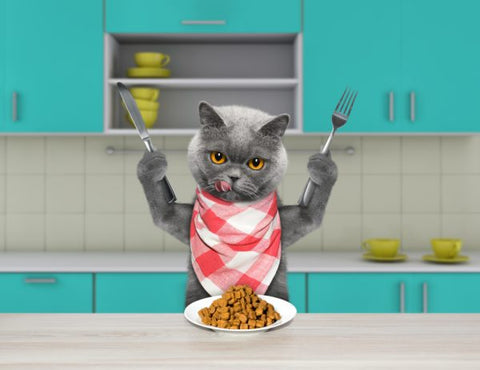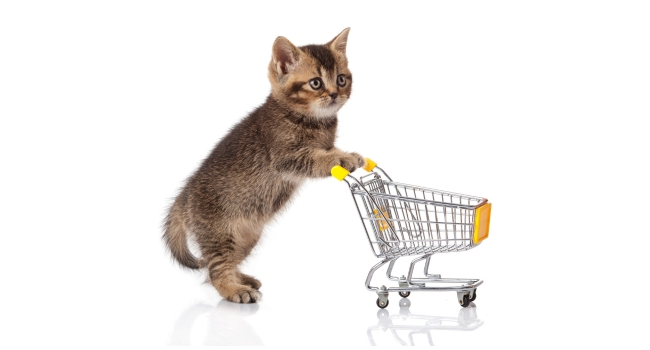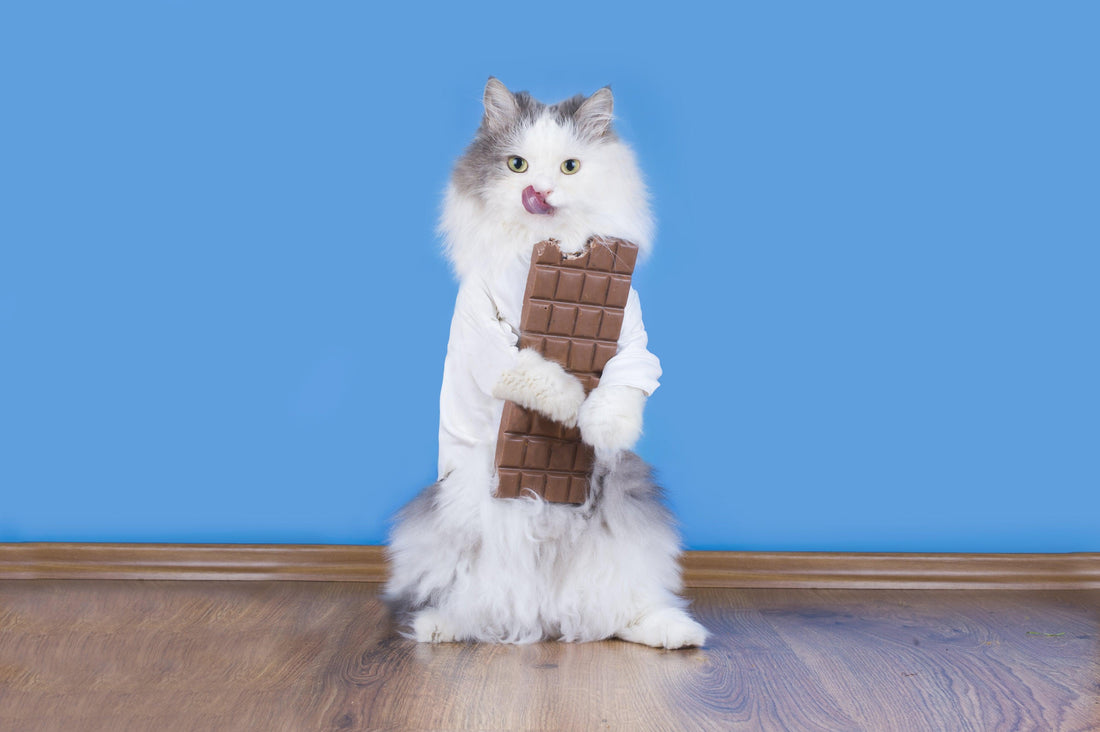Can cats eat chocolate? This is an important question to answer, as your cat’s health and safety are on the line if you give him or her some chocolate.
It’s common for people to assume that their pets can eat anything that they can, but this isn’t always the case – especially when it comes to chocolate!
This article will go into detail about why you should never give your cat chocolate, how to prevent him from doing so and what to do if he/she has consumed any.
Want to learn more? Keep Reading!
Should Cats Eat Chocolate?
Humans crave chocolate as a decadent dessert or satisfying comfort food, but should it be shared with cats?
The short answer is no.
Despite the name, chocolate is not good for cats. Cats should never be given chocolate because it can lead to poison and can be unsafe for both adult cats and kittens.
Why is Chocolate Bad for Cats?
There are certain ingredients in chocolate that make it harmful to cats. These ingredients include:
- Theobromine
- Caffeine
There is a small amount of caffeine and a high amount of theobromine in chocolate, which is poisonous to your cats.
When consumed, theobromine will absorb more slowly in cats than it does in humans. The result is that even small amounts of chocolate can be toxic to cats.
Dark Chocolate vs. White chocolate
The darker chocolate has higher caffeine and theobromine concentration because it contains more cocoa. Darker chocolates are also sweeter which could lure your cat into consuming more than they normally would.
In contrast, cocoa isn't found in white chocolate. It instead consists of sugar and xylitol, or other artificial flavorings.
Can We Give White Chocolate to Cats?
It contains too much sugar and xylitol which can lead to various serious conditions such as diabetes or weight gain. Avoid giving your pet food containing xylitol, as it is toxic to your cats.
Keep in mind that white chocolate contains no caffeine and theobromine but still poses a danger to the health of a cat.

A cat's stomach is different from a human's, so the amounts of chocolate that are safe for humans to eat may not be safe for cats.
It is never a good idea to feed your cat chocolate. Even the tiniest bit of chocolate will make your cat ill, so stay away from all chocolate, and keep it away from your cat as well.
Milk, dark, and semisweet chocolate are considered poisonous to cats and should be avoided.
Baking chocolate can also pose a danger because it contains enough sugar and fat that could lead to poisoning if consumed in large quantities.
A cat weighing eight pounds can consume the following amount of chocolate before becoming poisoned:
- Milk 3 g
- Dark 2 g
- Semisweet 2 g
- Baking 7 g
If A Cat Eats Chocolate, What Symptoms Should I Watch for?
Cats can't resist the taste of chocolate, but it isn't good for them. If your cat gets chocolate toxicity, there can be a range of symptoms from mild to severe:
Early Signs:
- Vomiting
- Diarrhea
- Panting
- Hyperactivity
- Frequent urination
- Anxiety
- Thirst
- Bloating
Late Signs:
- Increased activity
- Fast breathing
- Increased heart rate
- Ataxia (uncoordinated movements)
- High body temperature
- Pale gums
And in extreme cases, the cat may have seizures or go into shock. If you suspect your cat has eaten chocolate, take it to the vet right away.
Can A Cat Die if it Eats Chocolate?
Cats eat chocolate but it is bad for their health. Theobromine and caffeine - both chemicals in chocolate are toxic and can be dangerous for a cat's health. If a cat consumes a large amount of chocolate and doesn't get proper treatment, these toxins can cause death.
What to Do if Your Cat Eats Chocolate
Keep an Eye on Your Cat
If you suspect that your cat has eaten chocolate, watch your cat closely to determine if they exhibit any signs of being ill.
Within 6–12 hours of consuming chocolate, symptoms start to show up. Do not allow your cat outside during this period in order to ensure they are healthy.
Take Your Cat to Pet Hospital

In some cases, the symptoms don't appear until 12 hours after the ingestion. If your cat has eaten chocolate, you must bring him or her to the vet right away.
They may need to stay in the hospital for a few days until they can pass it naturally. The vet will help you figure out how much chocolate they've eaten and if there are any other issues that need to be addressed.
How Vets Treat Chocolate Toxicity in Cats?
Your veterinarian will perform a physical exam and lab tests to ascertain the seriousness of the poisoning and whether there are any other abnormalities present.
He or she might conduct some or all of the following tests:
- Chemical blood profile
- Electrocardiography (ECG)
- Electrolyte panel
- Urinalysis
Your veterinarian will treat your cat according to the condition and severity of the poisoning after confirmation.
Treatment of Chocolate Poisoning in Cats Includes the following:
1. Inducing Vomiting
A vet will induce vomiting with a medication, which will help get rid of the harmful ingredients present in chocolate and prevent further toxemia.
In cases where inducing vomiting doesn't work and there's a danger of toxicity, activated charcoal may be given to cats to bind the toxins.
2. Fluids Therapy
After inducing vomiting, the vet may administer intravenous fluids to speed up the metabolic process and wash the kidneys. The intravenous fluids will rehydrate your cat and dilute the toxic ingredients of the chocolate.
The vet will also monitor for kidney or liver failure, which can occur in cases of severe toxicity from the chocolate.
3. Further Medication
If your pet's symptoms are severe, your vet will prescribe additional medications for signs which may be still active.
Antibiotics will also be given if your cat has an infection, and painkillers may be prescribed to reduce their discomfort.
4. Hospitalization
Hospitalization of a cat depends on the severity of the chocolate toxicity.
Hospitalization is usually not required for mild cases of chocolate ingestion by a cat, but you may need to monitor your pet closely for vomiting or other symptoms during the next 12 hours.
Severe cases will require hospitalization, supportive care, and/or monitoring for signs of liver damage.
Keep Chocolate Away From Cats
If you have a cat, it’s important to make sure they can’t get their paws on any chocolate or sugary treats. Store your sweets in a place where your pet can’t reach them - preferably up high so they can’t jump up and grab them.
If you want to indulge in some sweets yourself, keep the wrappers and containers out of the room where your pets are kept.
Alternatives to Chocolate for Cats
That being said, it is best to keep your cat away from any kind of treats containing chocolates. Some great alternatives include:
- Fruits
- Protein snacks
- Catnip
1. Fruits
Fruits like mangoes and Strawberries are healthy treats for your kitty. In addition to being a great source of vitamins and minerals, they also have high water content which makes them a great choice if your cat is looking for something thirst-quenching.
2. Protein Snacks
Protein snacks, like small bits of cooked chicken or a small serving of tuna mixed with their favorite wet food, will give your cat the nutritional benefits they need without the sweetness that is often found in human candy.
Protein is an important component in their diet because it aids in the production of lean muscle and assists with weight maintenance.
There are all sorts of protein snacks to choose from:
- Chicken
- Lean beef
- Shrimps and prawns
- Sardines
- Lamb
- Cooked eggs
- Salmon
- Mackerel
- Tuna
3. Catnip
Catnip is another fun way to get your kitty up and moving. Sprinkling a little bit on their bedding or scratching post can provide hours of entertainment for your furry friend. Catnip can send a cat into frenzy mode but can also calm them when taken in moderation.
What Other Foods Should I Avoid Feeding My Cat?

If you want to share your human snacks with your cat, be sure they are not harmful to your cats. There are many other foods to avoid feeding your cat including:
- Alcohol
- Raw bread dough containing yeast
- Citrus fruits
- Coffee
- Coconut
- Grapes and raisins
- Dairy products
- Onions, garlic, leeks, chives, scallions, and shallots
- Xylitol
- Nuts
- Mushrooms
Key Takeaways
- Cats can't eat chocolate because it contains caffeine and theobromine which can lead to liver failure.
- At home, ensure that chocolate treats and baking ingredients are in a place that's completely out of your cat's reach.
- Make sure to call your vet immediately if your cat eats chocolate. Your vet will likely induce vomiting to remove the toxins before they cause liver damage. This unexpected expense can be eased by getting a cat pet insurance plan.
Importance of Pet insurance
Pet insurance is a great way to protect your animal's health. It can be hard to predict when an accident will happen, but with pet insurance, you're covered.
There are a few different types of plans depending on your needs, and it only takes minutes to get coverage for your pet.
Some pet insurance companies will even cover 100% of veterinary expenses. So make sure to choose the best pet insurance plan for your furry friend.
Once you have a plan in place, vet bills will never be too high because they'll already be covered by the policy.
It's important that we all take care of our animals' safety and well-being so they can enjoy their lives just as much as we do ours.
What Makes Genius Litter Different From Ordinary Litter?

Say goodbye to hauling heavy bags and hello to easy Genius Litter!
With our innovative non-clumping litter formula, you'll need less of it. One bag of our disposable Genius Litter lasts up to a month, so you won't need to refill the box as often and can save money on monthly costs.
One thing that separates us from traditional litter is that Genius Litter changes color to indicate when your cat has a potential health issue, so you can get them help before it becomes an urgent medical situation.
All you need to do is set up a delivery date with us each month, and rest easy knowing that Genius Litter will arrive at your doorstep every 30 days.
For a convenient solution for your cat, try Genius Litter today!
Why Is Lysine So Important For Your Pet?

Protect your pet's immunity!
Have you noticed that your cat is coughing, sneezing, and having rapid breathing? Or maybe he/she has been scratching more than usual?
These are all signs of a weakened immune system. One way to prevent this from happening is by using lysine supplements.
Lysine plays a key role in your pet's immunity because it helps to regulate the immune system.
Without enough lysine, your pets will be more susceptible to illness because their immune system can't fight off infections as efficiently.
When they are sick, they will also be less able to absorb nutrients and make use of other supplements that can help them feel better.
Give your pet the support they need. Our Lysine supplement provides essential amino acids to help support a strong immune system.
Order now to get 300 one-scoop servings or 150 two-scoop servings and don't worry about expiry!





